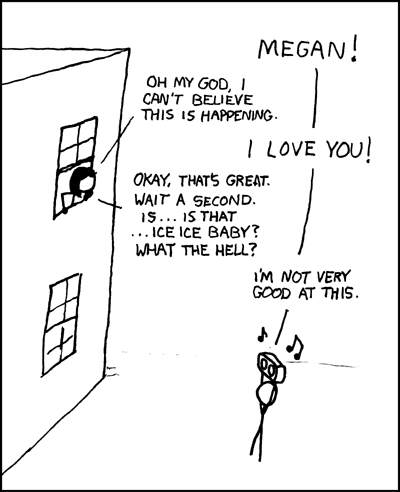Putting God to Bed, For Now
Probably.
There are two things I want to point out. The first is a clarification, given the state of plagiarism today. When I posted portions of Terry Eagleton's review of Dawkins' book a couple of weeks ago, I hadn't read the whole thing yet -- I had just posted the excerpts I found on another blog. Anyway, he wrote this: "...to claim that science and religion pose different questions to the world is not to suggest that if the bones of Jesus were discovered in Palestine, the pope should get himself down to the dole queue as fast as possible. It is rather to claim that while faith, rather like love, must involve factual knowledge, it is not reducible to it." And I hadn't read that when I wrote my own fumbling distinction between love and a curveball, which you can find somewhere below. They're not even that similar as sentences go, but wanted to mention it.
The second thing is more important. I now have read Eagleton's full review and while it's quite eloquent, it's true that I wondered where to find all these hyper-intellectual believers he seems to be writing about. And I figured it was worth giving some space to someone who defends the idea of a Godless universe, since that's an idea I believe much more easily than the opposite. Here's a long but very good piece worth reading. Some highlights (even the highlights are long, but listen to me, your blogmaster -- they are worth reading):
The previous excerpt (of Eagleton's review), which defined God as "the condition of possibility," seemed to be warning against the dangers of anthropomorphizing the deity, ascribing to it features that we would normally associate with conscious individual beings such as ourselves. A question like "Does 'the condition of possibility' exist?" would never set off innumerable overheated arguments, even in a notoriously contentious blogosphere. If that were really what people meant by "God," nobody would much care. It doesn't really mean anything — like Spinoza's pantheism, identifying God with the natural world, it's just a set of words designed to give people a warm and fuzzy feeling. As a pragmatist, I might quibble that such a formulation has no operational consequences, as it doesn't affect anything relevant about how we think about the world or act within it; but if you would like to posit the existence of a category called "the condition of possibility," knock yourself out.I really do recommend reading the whole thing, and the comments below it, where you'll find people, among other things, defending Spinoza with links to math-philosophy.***
Once you start attributing to God the possibility of being interested in some way about the world and the people in it, you open the door to all of the nonsensical rules and regulations governing real human behavior that tend to accompany any particular manifestation of religious belief, from criminalizing abortion to hiding women’s faces to closing down the liquor stores on Sunday.
The problematic nature of this transition —- from God as ineffable, essentially static and completely harmless abstract concept, to God as a kind of being that, in some sense that is perpetually up for grabs, cares about us down here on Earth — is not just a minor bump in the otherwise smooth road to a fully plausible conception of the divine. It is the profound unsolvable dilemma of “sophisticated theology.” It’s a millenia-old problem, inherited from the very earliest attempts to reconcile two fundamentally distinct notions of monotheism: the Unmoved Mover of ancient Greek philosophy, and the personal/tribal God of Biblical Judaism. Attempts to fit this square peg into a manifestly round hole lead us smack into all of the classical theological dilemmas: “Can God microwave a burrito so hot that He Himself cannot eat it?” The reason why problems such as this are so vexing is not because our limited human capacities fail to measure up when confronted with the divine; it’s because they are legitimately unanswerable questions, arising from a set of mutually inconsistent assumptions.***
We are left with fundamentally incoherent descriptions of what God is, which deny that he “exists” in the same sense that hummingbirds and saxophones do, but nevertheless attribute to him qualities of “love” and “creativity” that conventionally belong to conscious individual beings. One might argue that it’s simply a hard problem, and our understanding is incomplete; after all, we haven’t come up with a fully satisfactory way to reconcile general relativity and quantum mechanics, either. But there is a more likely possibility: there simply is no reconciliation to be had. The reason why it’s difficult to imagine how God can be eternally perfect and also occasionally wistful is that God doesn’t exist.***
...for the most part, theologians have basically abandoned the project of “proving” God’s existence, which is probably a good move.
But they haven’t given up on believing in God’s existence (suitably defined), which is what drives atheists like Dawkins (and me) a little crazy. Two thousand years ago, believing in God made perfect sense; there was so much that we didn’t understand about the world, and an appeal to the divine seemed to help explain the otherwise inexplicable. Those original motivations have long since evaporated. In response, theologians have continued to alter what they mean by “God,” and struggled to reconcile the notion’s apparent internal contradictions — unwilling to take those contradictions as a signal of the fundamental incoherence of the idea.
To be fair, much of Dawkins’s book does indeed take aim at a rather unsophisticated form of belief, one that holds a much more literal (and wholly implausible, not to mention deeply distasteful) notion of what God means. That’s not a completely unwarranted focus, even if it does annoy the well-educated Terry Eagletons of the world; after all, that kind of naive theology is a guiding force among a very large and demonstrably influential fraction of the population. The reality of a religion is manifested in the actions of its adherents. But even an appeal to more nuanced thinking doesn’t save God from the dustbin of intellectual history.
And where people are leaving notes like this one:
in your last sentence you writeGood times.
"The universe [..] peacefully solving its equations of motion [..]"
Is this not the same anthropomorphizing you critize (sic) in Eagleton's point of view?
And does it not somehow reveal that even an atheist is longing for a 'peaceful' universe in which 'we want to find meaning'?
And would this help explain your question 3, why people are religious?
















